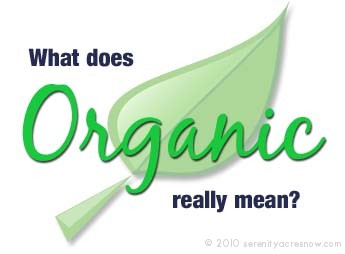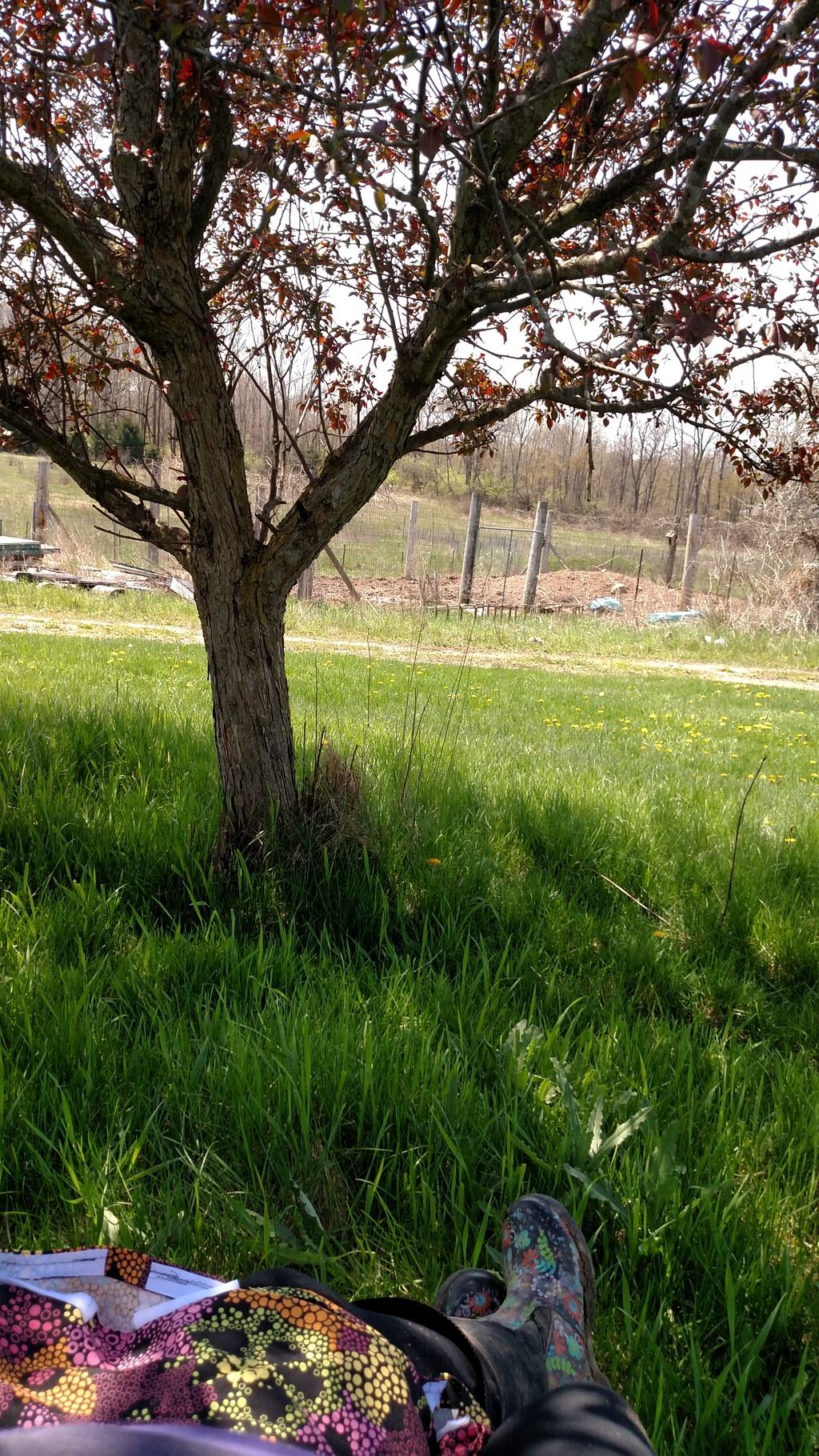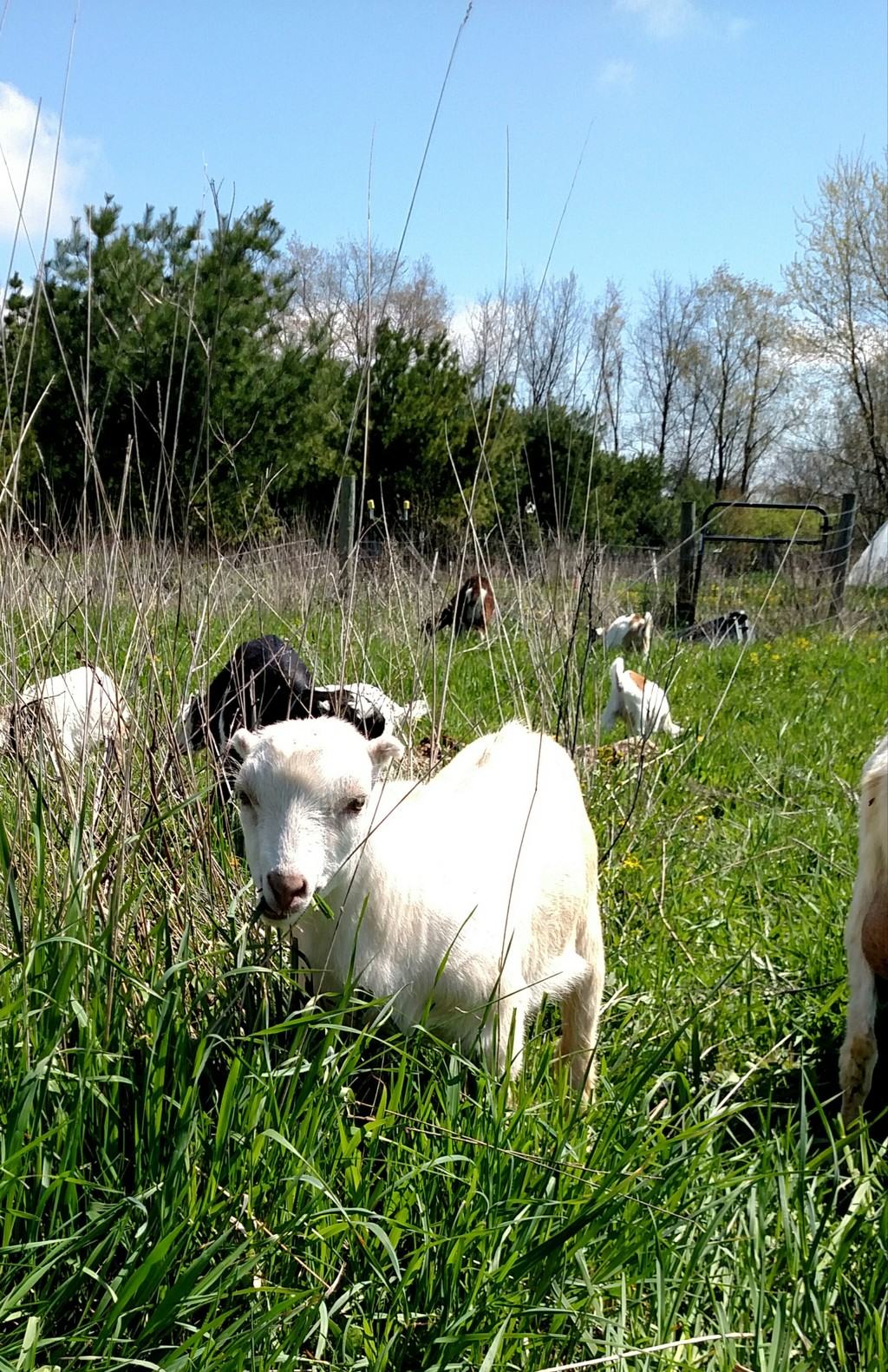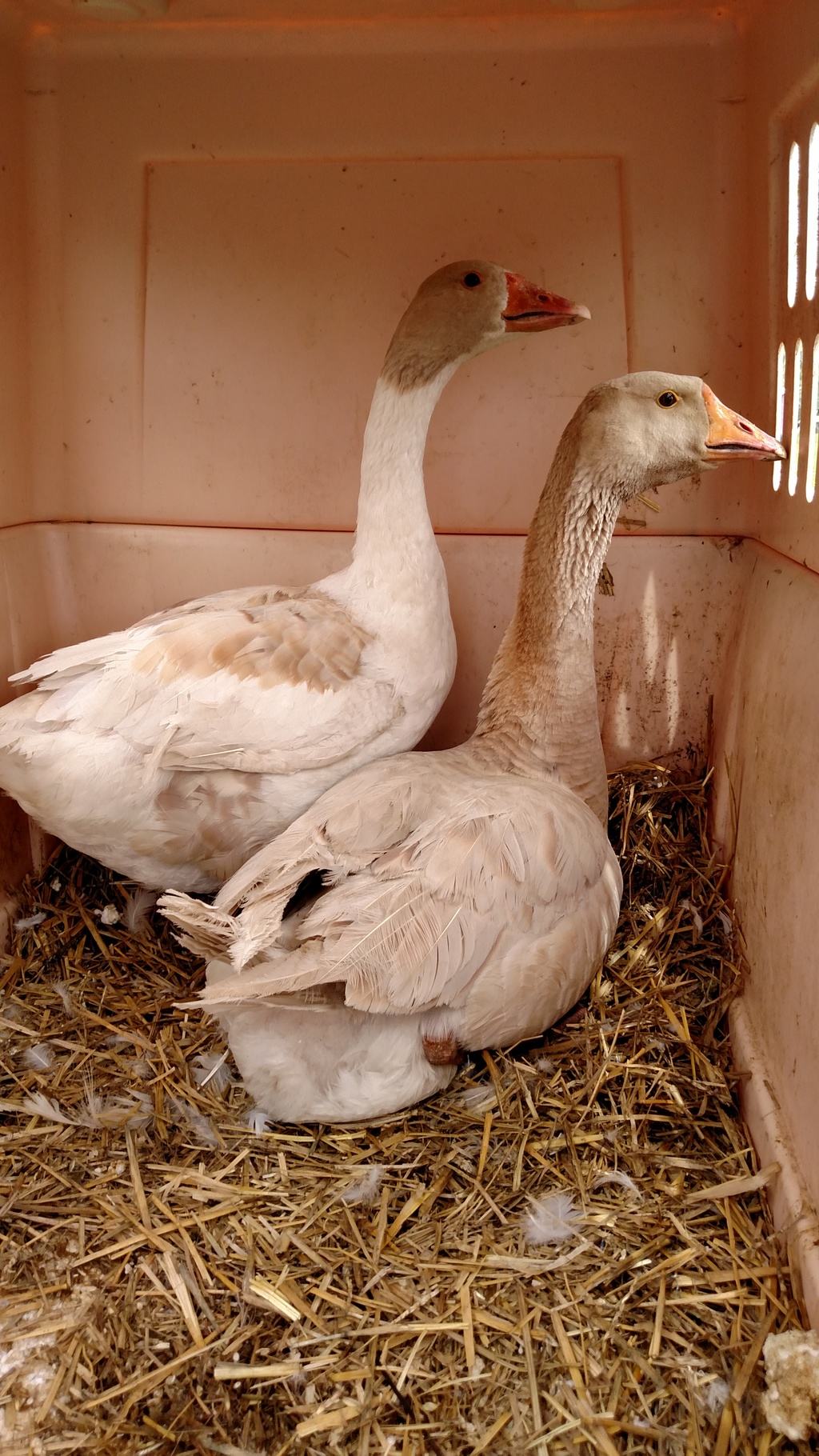One of the questions we frequently hear is inquiring as to whether or not our eggs are organic. Although I’ve briefly covered this subject on our Frequently Asked Questions About Eggs page, I’d like to explore the idea a bit further, from the perspective of what IS organic, especially when it comes to eggs.
In the documentary Food Inc., it is pointed out that many of the terms used to market food are designed to elicit notions of a pastoral setting in which these foods are raised, even though the reality is that these are usually raised on large industrial farms. And yes, that is even true of much of the foods labeled “organic.” Did you know that most of the big name organic brands are owned by large corporate conglomerates that also produce traditionally (“factory”) raised foods? Organic has become a buzzword that sells people on the notion of food that has been raised in a more responsible manner, but it is absolutely worth your time to investigate if the company using that label is doing things in the manner that you envision. To borrow a phrase from Inigo Montoya, it may not mean what you think it means. That Horizon organic milk that some of you are drinking? Horizon is owned by Dean Foods – the same company that produces milk from industrially raised cows. Also, the same company that bought Silk Soymilk, and quietly shifted from organic to conventional production methods. And I’ve read that the infection rate of Johne’s Disease (pronounced “YO-knees” and similar in symptoms to human Crohn’s Disease, it is spread by animals spending a lot of time in manure) is similar between “factory raised” and “organically raised” cattle – in 2007, roughly 68% of all U.S. herds were infected. That doesn’t strike me as providing a more humane environment for the animals, nor an improved climate for producing better nutrition. And that’s just one of many examples. 
In fact, from documentaries and reading, I’ve discovered that much of the organic stuff produced out there is still raised in the same or similar setting as the industrial foods; there are just tweaks made so that there is compliance with the USDA Organic Certification standards. It’s worth knowing what those standards are so that you can find out whether or not it matches up with your ideas about the conditions for animals producing organic foods under those standards. I just don’t think that the big corporate conglomerates that have gotten into the organic game have done so out of a sense of responsibility – if they did, they’d have changed the way they do things, not bought out another established, trusted organic brand simply to bring in more profits, since there is a consumer demand for it. They are just diversifying their profit portfolio, not trying to become better stewards of their flocks or fields.
I’m certainly not suggesting that every company with an organic label is utilizing mass feed lot methods and the like; certainly there are organic producers out there who work hard to bring superior foods to market. But the “organic” label on its own does not necessarily guarantee the quality or experience that a consumer expects. I think in many cases, it is being used to sham consumers into believing that they are getting a superior product that justifies the higher price tag, and many consumers learning the reality of the methods used in raising much of this stuff are shocked and dismayed by that knowledge. I know that’s how I felt.
I am more likely personally to be interested in purchasing locally-produced foods, especially if I have the opportunity to deal face-to-face with the producer, because, like us, they are eating the food they produce, and it isn’t likely that they are going to want to eat low-quality foods, or ones that have been produced with resulting health risks. That said, I know that there are small-scale organic producers out there who are providing excellent quality foods for our tables – and I applaud them! But I also know that the label – on its own – has lost authority, for me at least, because the standards allow things that I don’t expect from sustainably raised foods.
One of the reasons that we became interested in having our own egg-laying chickens is because when we really looked at the USDA requirements for organic certification of eggs, it was disappointing and distressful to us to discover that, while these animals are required to receive an all-natural diet that is free of animal by-products, and have access to the outdoors, the quality and quantity of that space, as well as the duration of time they are allowed to spend in it, are not regulated. So it’s left up to interpretation by the factory owner. Do you really think that most industrial food conglomerates are going to go back to their shareholders and brag about the wonderful yard they built for the chickens using the profits generated by the eggs? My two decades of experience working in corporate culture tells me no.
It is more likely (and has been discovered in some places) that there is a tiny little patch of dirt with a fence around it right outside of the warehouse door, and most of the birds won’t even go out there. Even more disturbing is that debeaking and forced molting – starving the hens for two weeks – are both allowed in facilities producing USDA Certified Organic eggs. I think that those are practices most folks assume wouldn’t occur in an organic setting. But realize that the hens laying eggs for your supermarket – even the ones labeled “Organic” or “Free-Range” or “Cage-Free” – are most likely being raised in a large warehouse facility, just without cages. Their “access to the outdoors” is primarily a marketing tool to make us as consumers feel better about what we are buying – those birds don’t roam around outside like they would in an actual pasture.
So, knowing all of this, we decided to raise our own birds so that we could have control over the conditions the birds live in, and as a result, have better eggs. We started out with just twenty birds, some of them roosters, and a small coop with a fenced yard of sufficient space for that number of chickens. But then, we thought, “If we are concerned with getting the best quality and knowing that the animals who produced the eggs were treated humanely, surely there are others who feel the same way.” So we added birds to be able to have enough eggs to supply others as well, constructed a larger coop, and decided to allow them to free-range. They certainly seem happier! It’s not cheap to feed them the highest quality mash we can get, or to provide them with the large coop that we have, but we can taste the difference in the eggs, and see the difference in the quality of life that they have with us, versus what they would have in an industrial setting (even an organically certified one.)
Organic Certification by the USDA can vary in cost, because there are many different sources of accreditation, both public and private, and either at the state or federal level. Typically, even a small producer such as ourselves is looking at several hundred dollars to certify, and possibly more. And, frankly, for what? What would it offer to me that I’m not already doing? I get to cut off my chickens beaks? Or starve them for two weeks so that I can accelerate their natural molting process and maximize my egg production? I have zero interest in doing those things. I am more interested in providing a humane and happy living environment to my animals, that includes high quality feed, true free-range access to our acreage, a secure and safe coop at night, and in turn, they provide us not only with what I feel are the best eggs I’ve ever eaten, but also companionship and entertainment. They’re smarter and sweeter than I ever gave chickens credit for, before I had any of my own!
You’ll notice in the links section to the right, under “Farms That We Admire” there is a listing for Polyface Farms, the owner of which is the Salatin family. They call theirs the “farm of many faces,” because rather than a monoculture based operation (like most industrial farms) they raise a large variety of animals and food – there is diversity on their farm, and that’s the way things should be. Their reputation is for going “Beyond Organic,” and that is the same thing we are trying to do here.
I thank you for taking the time to read this if you’ve made it all the way to the end. Obviously, I have pretty strong opinions on this stuff, and I’m always learning – so who knows, someone may share something with me in response to this that will teach me more. But I do know that I’m much happier when I know the source of my food, and our industrial food system prevents us from having that knowledge, in most cases. I know that I can go check on my hens at any point during the day, and if there is something wrong, I can help to make it right, and that the eggs produced here are not just delicious, but the existence of the hens making them is sustainable, happy, and responsibly maintained. I hope that those who are local and have access to our eggs appreciate that, because it’s something I work hard toward every day.
Have you seen Food, Inc.? What did you think? What are your thoughts on the responsible use of the organic label? I’d love to hear from you in the comments.





Leave a Reply